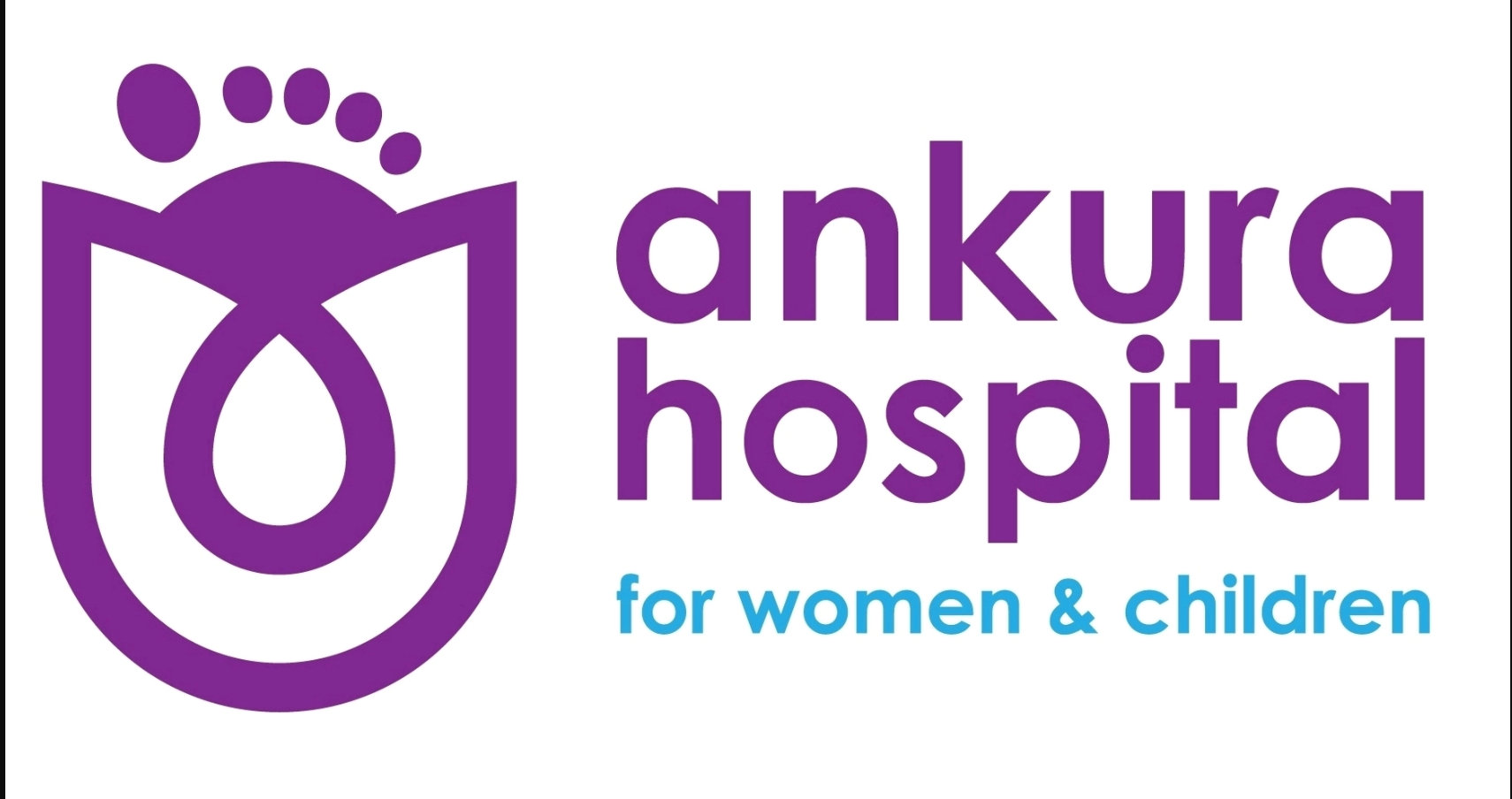Best Diabetologist Hospitals in Hyderabad

Sunshine Hospitals
Secunderabad, HyderabadMulti-Specialty Hospital
Penderghast Road
8787 KM's away
Specialities
13Doctors
23Beds
500










Ankura Hospital For Women & Children- Kukatpally
Kukatpally, HyderabadPlot 55 & 56, Jntu Hitech City Road, Near Hitech City Railway Station, KPHB 7th phase, Kukatpally Housing Board Colony, Telangana 5000
8777 KM's away
Specialities
4Doctors
22Beds
100










Century Hospital
Banjara Hills, HyderabadMulti-Specialty Hospital
Amrutha Estate, Road Number 12, Bhola Nagar
8780 KM's away
Specialities
19Doctors
22Beds
0










Apollo Spectra Hospitals
Kothaguda, HyderabadMulti-Specialty Hospital
Plot Number 1 & 6, Kothaguda X Roads, Kondapur
8774 KM's away
Specialities
12Doctors
18Beds
50










Suraksha Hospitals
Kompally, HyderabadMulti-Specialty Hospital
beside RTO office, kompally, medchal road.
8787 KM's away
Specialities
8Doctors
16Beds
0










Dr. Mohan's Diabetes Specialities Centre
Domalguda, HyderabadDoor Number 1-2-365/36/5&9, R. K. Mutt Road,
8786 KM's away
Specialities
2Doctors
8Beds
8










Sreshta Sri Kamala Hospitals
Dilsukhnagar, Hyderabad11-11-739/1&2, NH 65, Gaddianaram
8790 KM's away
Specialities
3Doctors
3Beds
50



Al-Shifa Mother & Child Hospital
Langer House, HyderabadPlot Number 30, C Block, P & T Colony, Bandlaguda, Rajendra Nagar
8778 KM's away
Specialities
1Doctors
2Beds
0


Wellness Hospital
Ameerpet, HyderabadMulti-Specialty Hospital
7-1-79/A and B, Dharam Karan Road
8783 KM's away
Specialities
8Doctors
1Beds
100
Top 10 Diabetologist Hospitals Near Hyderabad
| Hospital | Rating | Doctors | Location |
|---|---|---|---|
| Sunshine Hospitals | ---- | 2323 | Secunderabad, Hyderabad |
| Ankura Hospital For Women & Children- Kukatpally | ---- | 2222 | Kukatpally, Hyderabad |
| Century Hospital | ---- | 2222 | Banjara Hills, Hyderabad |
| Apollo Spectra Hospitals | ---- | 1818 | Kothaguda, Hyderabad |
| Suraksha Hospitals | ---- | 1616 | Kompally, Hyderabad |
| Dr. Mohan's Diabetes Specialities Centre | ---- | 88 | Domalguda, Hyderabad |
| Sreshta Sri Kamala Hospitals | ---- | 33 | Dilsukhnagar, Hyderabad |
| Onus Hospitals | ---- | 33 | Champapet, Hyderabad |
| Al-Shifa Mother & Child Hospital | ---- | 22 | Langer House, Hyderabad |
| Wellness Hospital | ---- | 11 | Ameerpet, Hyderabad |
Questions & Answers on "Diabetologist" (65)
Fasting sugar 300 Ple tablet
Male | 50
A high fasting sugar level like this could indicate uncontrolled diabetes. It's essential to manage your blood sugar levels to prevent any complications. I recommend scheduling an appointment with your diabetologist to discuss your results and get a proper diagnosis. In the meantime, try to avoid sugary foods and drinks and stay hydrated. Taking your prescribed medication, like the tablet you mentioned, is crucial.
Answered on 29th Nov '25
Read answer
m a diabetic patient ifeel my left arm feels vacant while sleeping in night
Male | 50
A medical issue may be causing numbness in your arm at night. Peripheral neuropathy often occurs with diabetes. Excess glucose damages arm nerves, creating that vacant feeling. Controlling sugar levels helps reduce tingling or numbness. Your diet, exercise, prescribed medication — these properly manage blood sugar. Achieve healthy targets to relieve neuropathy discomfort affecting your limb.
Answered on 15th June '24
Read answer
What happens for a person having 10.8 HBA1C
Male | 83
A 10.8 HbA1c number is higher than ideal. High sugars can result in excessive thirst, frequent urination, and fatigue. Decreasing levels involves healthy eating habits, regular exercise, and following prescribed medications
Answered on 15th June '24
Read answer
My mother has accidentally eaten 20 amaryl mv 1mg tablets is it lethal ?
Female | 46
Consuming 20 Amaryl MV 1mg tablets can prove extremely hazardous. This medication lowers blood sugar levels. Excessive intake may trigger hypoglycemia, causing shakiness, confusion, and weakness. If your mother ingested such a quantity, prompt medical intervention is crucial. Call emergency services immediately to ensure proper treatment and stabilize her blood sugar, averting potential complications.
Answered on 15th June '24
Read answer
What is the best treatment for diabetic retinopathy
Diabetes can affect your eyes in a big way. It can cause serious damage to the retina, a part of your eye. This problem is called diabetic retinopathy. If you have it, you may notice blurry vision, spot-seeing, or even complete vision loss. But there's help. The main thing is keeping your blood sugar levels under control. Take your medicines exactly as the doctor says. Eat foods that are good for you. Check your blood sugar regularly. And get your eyes checked often.
Answered on 18th June '24
Read answer
I have sugar 203 after 4 hrs of eating
Female | 69
High blood sugar above 203 is abnormal after eating. It occurs when your body can't produce enough insulin or use it correctly. You may often feel thirsty, tired, and hungry. Manage high blood sugar by following a balanced diet, staying active through exercise, and taking medications prescribed. Check blood sugar levels frequently. See your doctor for more guidance.
Answered on 16th June '24
Read answer
Sugar problem khane se pahile 539 khane bad 759
Male | 60
Your blood sugar levels are very high, which is a serious concern. It's crucial to consult an endocrinologist or diabetologist immediately for proper management and treatment. Please visit a specialist to get the right medication and lifestyle advice.
Answered on 15th July '24
Read answer
I am interested I Diaformula as a diabetic.Why are all comments from users from typically non- Ugandan hertage while the medication purporting to be of Ugandan origin?
Male | 59
It's not uncommon for online reviews to come from a variety of backgrounds, and sometimes, certain medications may be more popular in different regions. In fact, the lack of Ugandan heritage comments doesn't necessarily reflect the effectiveness or origin of the medication. If you're considering using Diaformula for your diabetes, it's always best to consult with your physician first. They can provide personalized advice based on your specific health needs and medical history. It's important to prioritize your health and well-being, so seeking professional guidance is a great next step.
Answered on 29th Oct '25
Read answer
HI DOCTOR, MY BLOOD SUGAR FASTING IS 120 AND PP IS 260. TILL NOW NO MEDICINE STARTED.KINDLY HELP
Male | 34
These levels suggest diabetes - too much sugar in the bloodstream. Don't ignore this red flag. Taking action now prevents future problems. Eat healthy foods. Move your body regularly. Medication may also help, on doctor's advice. Control blood sugar before complications arise.
Answered on 23rd May '24
Read answer
I am suffering with type 1 diabetes. i am taking insulin name human mixtard, and my HBAIC is 8.1 , there is also a periods problem (a long time menopause), not able to climb up the stairs, not able to do up down work , not able to run , can't walk more than 30 minutes, it seems that my legs are like a hard wood when i walk, my fasting ranges between 300-600 and after eating it goes between 200-400. what should I do?
Female | 22
Diabetes is challenging; high blood sugars deplete energy, causing issues. Adhering to insulin regimen and dietary habits proves crucial. Physical activity, however modest, aids glucose regulation and wellness. Persistent symptoms necessitate consulting healthcare professionals for tailored recommendations. It's vital to prioritize self-care through medication adherence, nutritious choices, and regular movement. Seeking medical guidance when difficulties persist ensures proper management.
Answered on 10th Nov '24
Read answer
I am 83 year old.i have type 2 diabetes since 2012.my glucose levels are normal except fasting level oscillate between 120 and 130.imy phicician recently changed the medicine to SITARA DM 1000 since July 2024.i have been taking the same since then.at times my fasting level going down to 100 and pp to 120.now I would like to know whether I can take SITARA DM 500 twice a day instead SITARA DM 1000 once a day.kindly advise.
Male | 82
Sitara DM 1000 is a strong medicine for diabetes. Your levels have been getting better which is a positive thing. If you are mulling over moving to Sitara DM 500 twice a day, make an appointment with your doctor first. They will assist you according to your exact health requirements. Skipping a conversation with your doctor before a medication change could be dangerous. Inform them of your condition and seek their opinion.
Answered on 16th Oct '24
Read answer
I am suffering from diabetes since 20 years n hypothyroidism since 10 years... Now i am having stiffness in my leg muscles since 1 month.it is relieved a bit by applying some pain killer gel.taking vitamin d3 must 60 k from 3 weeks.takimg ccm also.taking thyroid n diabetic medicines.my diabetes is under control for all this 20 years.now what to do for mayalgia n stiffness.
Female | 72
Answered on 23rd May '24
Read answer
High blood sugar of 262 been high for 4 days
Female | 38
High blood sugar can cause excessive thirst, fatigue, and increased urination. If it is high for too long, like 262 for 4 days, it can be dangerous. This may be due to not taking diabetes medication, eating too much sugary food, or lack of exercise. To reduce it, try drinking water, eating healthy foods, and moving more. If this still doesn't help, you should go to a doctor.
Answered on 5th Nov '25
Read answer
My 75-year-old grandmother, who has diabetes, accidentally took a double dose of her Glimpride medication this morning. She was supposed to take 0.5 mg but took 1 mg instead. I'm worried about her blood sugar levels. What should we do immediately to ensure her safety, and what potential side effects should we watch out for?
Male | 75
It's understandable to be concerned about your grandmother’s health after the extra dose of Glimepiride. Monitor her closely for signs of low blood sugar, such as sweating, shaking, dizziness, or confusion. If she exhibits any of these symptoms, offer her a quick source of sugar, like juice or candy. Ensure she stays hydrated and has regular meals. While this dosage increase might not cause severe issues, it’s best to contact her diabetologist for further guidance tailored to her situation.
Answered on 23rd Jan '25
Read answer
Dear Madam Hba1c is 7 fasting sugar 129 /pp/150 triglyceride 200 is it diabetes patient is obese
Female | 42
Dear Madam, It seems that achieving good blood sugar control might be a determining factor, based on the measures you've given. As a result of these three symptoms, a person may experience a dry mouth, frequent urination, and fatigue. Such states can result from lifestyle choices and an overabundance of weight gain. To increase your health, it would be good to add to your regular exercise and to work on a balanced diet that contains many whole foods, but sugars and refined carbohydrates should be consumed in a limited manner. Keep an eye on your progress, it's crucial! Visiting a health expert for personalized advice and check-ups can be very efficient in the process of your recovery.
Answered on 23rd Dec '24
Read answer
What happen if non diabetic take metformin 500 mg once a day for 5 days
Female | 45
For individuals without diabetes, taking metformin 500 mg once daily for 5 days may lead to stomach issues. Cramps, diarrhea, or nausea could occur.
Answered on 15th June '24
Read answer
I've been given the wrong dose meds, I'm meant to be on 100mg a day, I have 50mg tablets, I take 2 a day. I've been given 150mg tablets, the prescription sticker on the box says 50mg, but it's a box of 150 mg tablets, I've been taking 2 a day for a couple weeks.
Female | 27
You accidentally took incorrect medication dosing. Two 150mg tablets daily exceeds your prescribed dosage. This elevated dosage could trigger adverse effects like headaches, dizziness, nausea. Promptly notify your doctor about this mix-up for proper dosage adjustment tailored to your needs.
Answered on 15th June '24
Read answer
Hello I need help Apni amr help korta parban
Male | ২৪
It sounds like you're experiencing some challenges. there could be various reasons for this, like stress, lack of sleep, or even nutritional deficiencies. Well, the best thing to do is to schedule a consultation with a physician. They can listen to your concerns, run some tests if needed, and work with you to come up with a plan. In the meantime, try to get plenty of rest, eat well, and practice some relaxation techniques.
Answered on 1st July '25
Read answer
I have fever cough and cold can I take wikoryl 10 tablet If I also have diabetes and hypothyroidism
Female | 41
These are common symptoms from a viral infection, such as a high temperature, cough, and nasal congestion. While Wikoryl can help alleviate these issues, it’s crucial to consider your conditions of diabetes and hypothyroidism. Some ingredients in medications may affect blood sugar levels or interact with your thyroid medications. Therefore, I recommend consulting your doctor before starting any new medication. They can provide personalized advice and ensure you find safe, effective relief while managing your overall health.
Answered on 9th Feb '25
Read answer
I am diabetic patient since 2000 and taking insulin mixtard 30 hm penfill but this insulin short by company do I take human mixtard 40 as a substitute? Please advise me
Male | 49
Due to shortage of your usual insulin mixtard 30, switching to human mixtard 40 could be an option as they are similar insulins. However, it's always best to consult with your diabetologist before making any changes to your medication. They can offer personalized advice based on your specific needs and health condition. It's important to ensure a smooth transition to the new insulin to avoid any disruptions in your blood sugar management. Your doctor will guide you on the correct dosage and usage of human mixtard 40.
Answered on 5th Dec '25
Read answer
Get Free Assistance!
Fill out this form and our health expert will get back to you.


